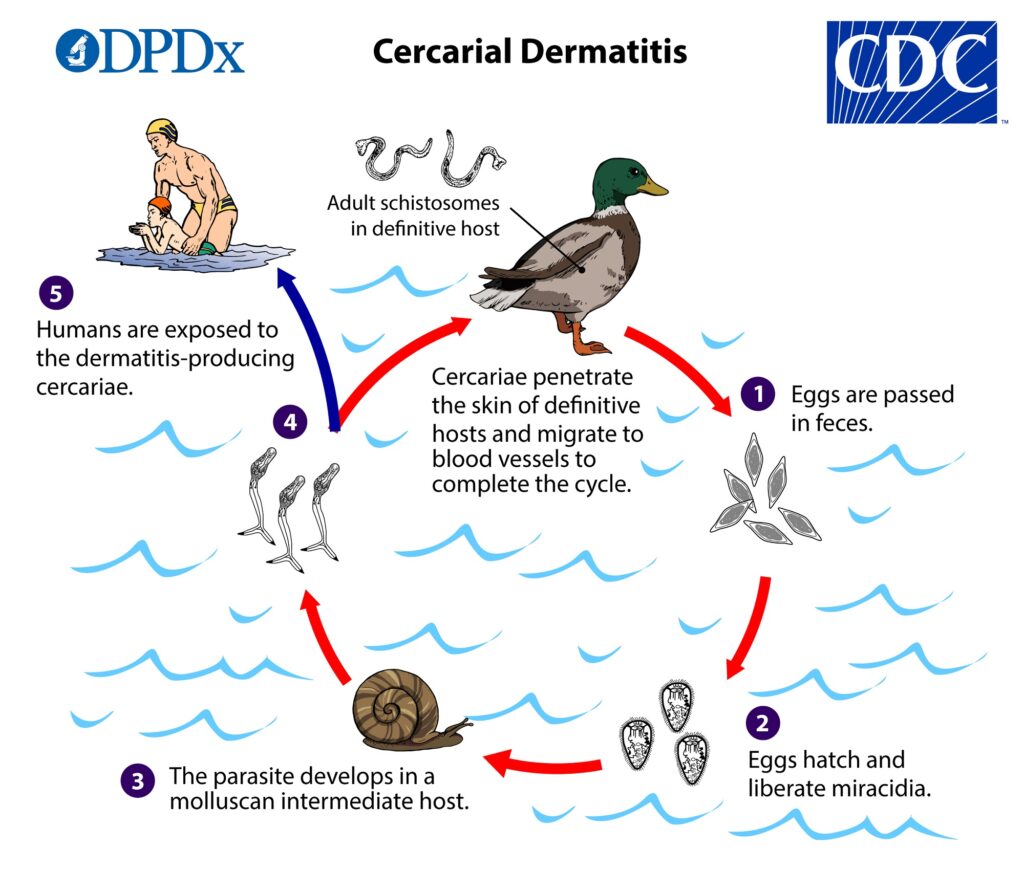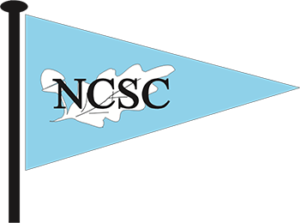Swimmers itch
Update: 25th July no reports of itch for at least a week now, so hopefully all clear.
Last week (w/c 19 June) some of the Open Water swimmers were experiencing Swimmers Itch (cercarial dermatitis). Whilst this is not seen as harmful to humans – except for a very annoying itch – club members should be aware it may be present on either lake.The lifecycle is shown here.
What is it?
This is a microscopic parasite that infects some birds and mammals. The parasites are released from snails into the water, where they try to find a host. Their preferred host is a specific bird or mammal but if it comes into contact with a swimmer or person in the water it will burrow into the skin and cause and allergic reaction and rash. swimmers itch is found worldwide and is more frequent during summer months. Humans are not suitable hosts so the larvae cannot develop in a human so they soon die.
Symptoms of swimmer’s itch may include:
- tingling, burning, or itching of the skin
- small reddish pimples
- small blisters
Within minutes to days after swimming in contaminated water, you may experience tingling, burning, or itching of the skin. Small reddish pimples appear within twelve hours generally. Pimples may develop into small blisters. Scratching the areas may result in secondary bacterial infections. Itching may last up to a week or more, but will gradually go away.
Because swimmers itch is caused by an allergic reaction to infection, the more often you swim or wade in contaminated water the more likely you are to develop more severe symptoms. The greater the number of exposures to contaminated water, the more intense and immediate the symptoms will be.
It is more prevalent in shallows and is not contagious.
How to reduce the effect or prevent it:
Whilst there is no way of avoiding them, less time in the water, wearing a wetsuit (gloves and boots) is said to help. (“I wasn’t bitten where the wetsuit covered me” – website editor).
Lather up – apply a water repellant barrier such as waterproof sunscreen or waterproof insect repellant, petroleum jelly or the skin oil to reduce the ability for the parasite to penetrate the skin.
Rinse Off – Immediately after being in contaminated water shower down with fresh water.
Towel Off – Rub down briskly with a towel when emerging from the water. If the parasites are on the skin they will try to penetrate as the skin dries. Vigorous towelling crushes them before they can.
Treatment
Most cases of swimmers itch do not require medical attention. If affected the general advice seems to be use anti histamines, Epsom salt baths and corticosteroid creams.
A couple of links for more information:

